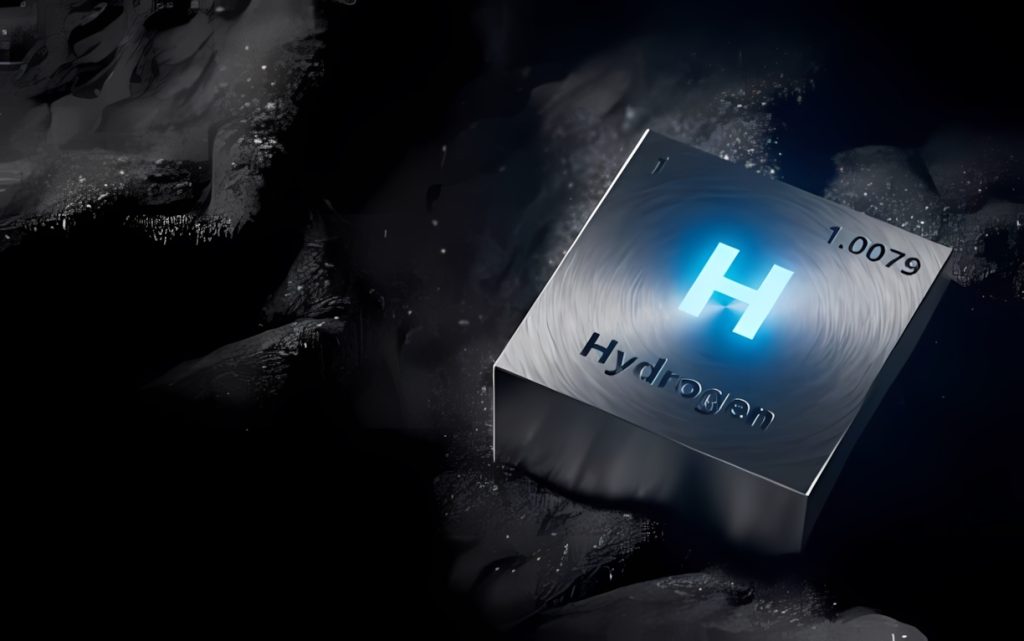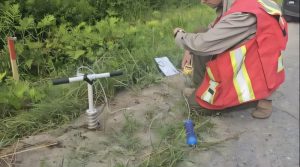Quebec Innovative Materials Discovers Key Hydrogen Deposits at Ville Marie Property

Quebec Innovative Materials Corp. [QIMC-CSE, QIMCF-OTC, 7FJ-Frankfurt] is aiming to capitalize on growing investor interest in underground hydrogen, which can also be called natural or white hydrogen, as the gas itself is increasingly seen as having a future in decarbonizing the environment.
 On September 4, 2024, the company announced the landmark discovery of hydrogen soil samples at its 250 square-kilometre Ville Marie property in western Quebec. Ville Marie is one of a basket of Quebec properties, covering over 300 square kilometres, that QI has staked based on the recommendations of its partner the Institut National de la Recherche Scientifique (INRS). INRS is a high-level research and training institute with geological and geochemical experience in the regions of Quebec where QI Materials’ properties are located.
On September 4, 2024, the company announced the landmark discovery of hydrogen soil samples at its 250 square-kilometre Ville Marie property in western Quebec. Ville Marie is one of a basket of Quebec properties, covering over 300 square kilometres, that QI has staked based on the recommendations of its partner the Institut National de la Recherche Scientifique (INRS). INRS is a high-level research and training institute with geological and geochemical experience in the regions of Quebec where QI Materials’ properties are located.
A report by Mitsubishi Heavy Industries (MHI) Group’s Spectra online magazine notes that growing investor interest stems from the fact that hydrogen is widely viewed as one of the key replacements for fossil fuels in industry and a critical factor in the race to net zero C02 emissions by 2050. But if there is going to be enough hydrogen to meet the expected growth in demand, low-carbon production techniques, including the harvesting of naturally occurring hydrogen found in underground deposits of the gas will need to be scaled up
“Pockets of natural hydrogen were known to exist for some time, and a well in Mali has been delivering virtually pure natural hydrogen since 2012. But scientists only recently found that there are more deposits of natural hydrogen than previously thought,” the Spectra report said.
Published reports say the case for producing hydrogen from underground reservoirs has taken a step forward with the successful testing of an exploration well [in Gold Hydrogen Ltd.’s [GHY-ASX] Ramsey project in Australia], which flowed high purity hydrogen and helium. High concentrations of both gases were confirmed at the Ramsey 2 well, with hydrogen purity levels reaching up to 95.8% at approximately 531 metres deep.
It is also worth noting that Denver-based startup called Koloma has raised over US$91 million from investors, including Bill Gates and Jeff Bezos, to drill for hydrogen in the same way that resource companies drill for natural gas.
The challenge for everyone involved is to demonstrate that natural hydrogen is present in sufficient volumes to be extracted for commercial use.
“The real smart money is now realizing why spend millions and millions of dollars supersizing hydrogen at high cost using very complex science and IP when perhaps it can be found naturally in the soil,” said Sheldon Inwentash, Chairman of ThreeD Capital [IDK-CSE, IDKFF-OTCQX], a Canadian venture capital firm. ThreeD Capital part of a group of insiders that currently own 40 million QI Materials shares
“This was a new revelation, certainly to us six months ago when [QI Materials CEO John Karagiannidis] introduced the company to us,” Inwentash said.
QI Innovative is led by Karagiannidis, a Quebec-born financier, who is a dealing representative with EMD Financial and has been involved in over 300 transactions involving emerging private and public companies. Chairman Jakson Inwentash is vice-president, investments at ThreeD Capital.
QI Materials has secured the rights to hydrogen claims in Quebec based on the advice of the INRS following years of research by Professor Richer-LaFleche, Scientifc Head of Applied GeoScience Laboratory at INRS.
Professor Richer-LaFleche indicated to QI Materials, which areas his research model pointed to, based on research papers that had come from Australia where he noticed a lot of similarities in terms of rock type and fault systems. The INRS had developed a soil sampling methodology for the presence of natural hydrogen and areas of Southern Quebec were scoring high.
There are three large main claim groups in the province that match the criteria [established by Professor Richer-LaFleche’s research] and QI Materials has staked them all. They include the Ville Marie Hydrogen Project, the Lac St Jean Hydrogen Project, and the Gaspe Bay Hydrogen Project.
At Ville Marie, the company said findings from a recently completed 9.7-kilometre north south line (7.0) have uncovered hydrogen soil samples with concentrations exceeding 1,000 parts per million. “Significantly we observed eight readings exceeding 600 ppm, with two of those surpassing 1,000 parts per million,” the company said. Additionally, the average measured 531 ppm over a 450 metres interval between the readings above 1,000 ppm.
“These highly anomalous values can be considered first class given the absolute values that, locally, exceed the instrumental detection limit of 1,000 ppm,” said Professor Marc Richer-Lafleche.
In a press release on October 3, 2024, the company announced a significant 11-kilometre expansion of its natural renewable hydrogen discovery to the northwest. It said recent soil gas measurements from Line 13, recorded at 594, 543, and 463 ppm, are the highest levels detected outside of those reported from Line 7.0 in a news release on September 4, 2024. “These high readings located 11 kilometres northwest of the 1000 ppm samples collected in Line 7, highlight the district hydrogen-rich zone across QI Material’s Ville Marie property,” the company said. “This milestone is supported by the collection of 1,057 samples.
News of the expansion has sent QI Materials’ stock price up from 28 cent on October 3, 2024, to 40 cents on October 11, 2024. The shares trade in a 52-week range of 40 cents and $0.01.
“Our recent findings have confirmed our natural renewable hydrogen model underscoring the uniqueness of the geology and rock formations in the region,” said Karagiannidis. “This further positions QIMC at the forefront of sustainable energy solutions, tapping into abundant and renewable Natural Hydrogen,” he said.
In addition to its western expansion, the company has announced the acquisition of new zones in the Duhamel, Fabre-West and Bearn areas, located to the south of the current high ppm findings. “These areas align with geological indicators of our natural hydrogen district,” the company said. “With these strategic acquisitions, we have increased our total hydrogen land package to over 300 square kilometres.”
The hydrogen being encountered by QI Materials is genuine natural (white) hydrogen resulting from water passing through the fault system and geochemically reacting with a specific type of basement rock that a INRS model called for. That geochemical reaction takes out the O from the H20 leaving pure hydrogen to seep upwards.
QI Materials is conducting advanced gravimetry and audiomagnetotellurism (AMT) geophysical surveys. The aim is to identify areas most likely to contain valuable reservoir rocks by focusing on assessing variations in the thickness of local sedimentary rock deposits, known as gravity troughs over the Archean basement.
The company said it is also set to launch a hydrogen exploration program on its Lac St. Jean project in November. “This initiative is a significant step forward in our strategy to expand our hydrogen exploration and production capabilities, supporting or goal of becoming a leader in the hydrogen economy,” the company said. It said the strategic interest in Saguenay-Lac-St Jean region is based in part of the presence of deep-water port infrastructure at La Baie (Alma). “This would make it possible to export hydrogen (solid or gaseous) to European, Asian or American markets bordering the Atlantic Ocean.”
Resource World Magazine Inc. has prepared this editorial for general information purposes only and should not be considered a solicitation to buy or sell securities in the companies discussed herein. The information provided has been derived from sources believed to be reliable but cannot be guaranteed. This editorial does not take into account the readers investment criteria, investment expertise, financial condition, or financial goals of individual recipients and other concerns such as jurisdictional and/or legal restrictions that may exist for certain persons. Recipients should rely on their own due diligence and seek their own professional advice before investing.
